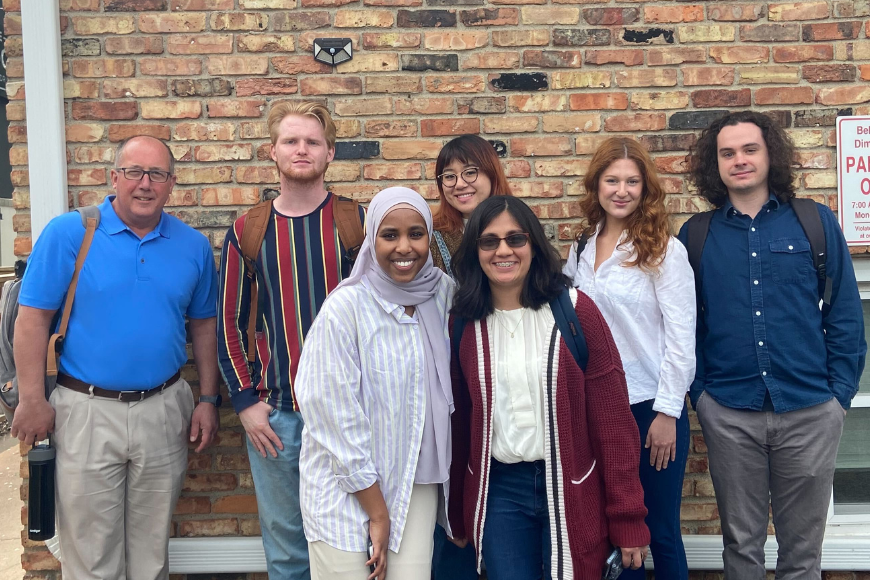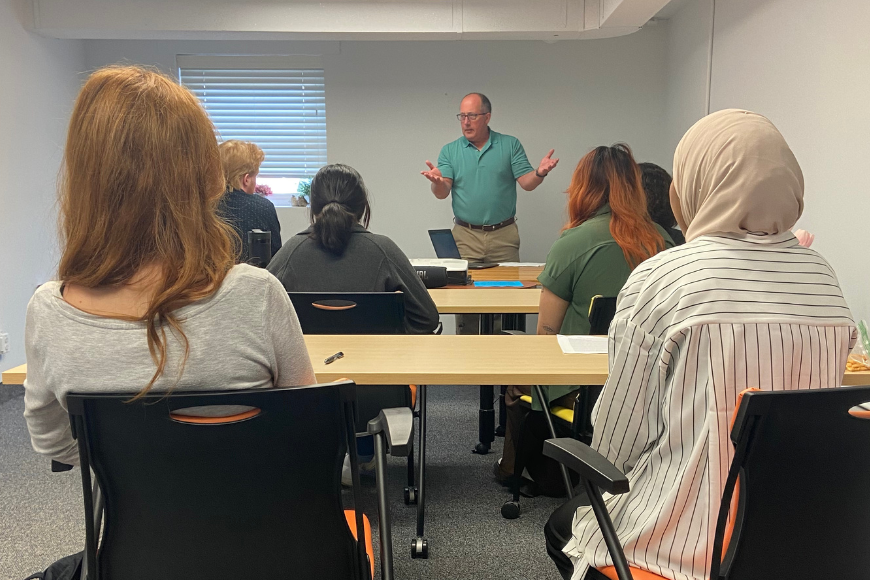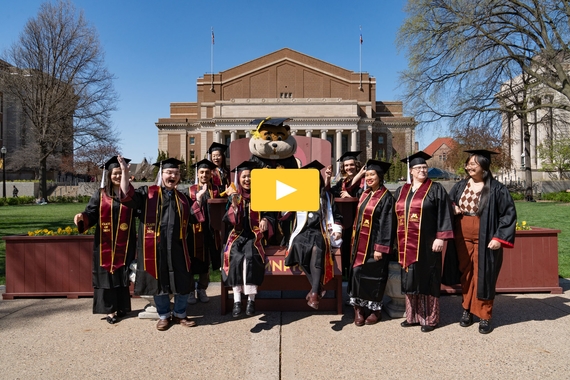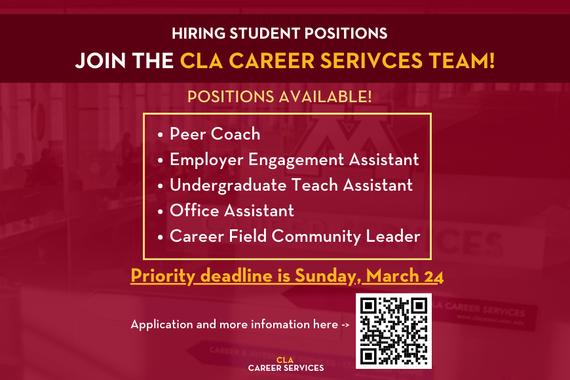CLA is a Great Place to Recruit Future Employees
When Jay O’Neill returns to his alma mater at the University of Minnesota’s College of Liberal Arts (CLA), he isn’t on campus just to reminisce. He knows that CLA is also a great place to recruit future employees. O’Neill is the president of Behavioral Dimensions, an organization that serves children with autism and other behavioral conditions, and he regularly engages with liberal arts students at career fairs and by advertising on Handshake, the campus portal for employment opportunities.

Recently, O’Neill and his team at Behavioral Dimensions started a new recruitment strategy in partnership with CLA Career Services. They began hosting Pre-Internship Projects, one-week opportunities for students to gain hands-on career experience with a local employer over school breaks. During the week of January 8-12, 2024, Behavioral Dimensions hosted its third Pre-Internship Project with CLA students and we spoke with O’Neill about his experience. The following interview has been edited for length and clarity.
Q: As an alumni and employer, what have you seen to be the benefits of hosting a Pre-Internship Project with liberal arts students?
Jay O’Neill: We see the quality of the students in CLA and want to educate them about autism and the related conditions that we serve. If folks want to pursue careers in applied behavior analysis, they're just countless and endless jobs. I've done a lot of job fairs in the past and interacted with a lot of undergraduate students, and I just don't think people always know the scope and variety of jobs that are available.
It has also been a successful recruitment strategy. In our January 2023 project, we ended up employing one of the students over their summer break, and then in the May 2023 project we had a person join our team as an employee, and she's still with us. So we got two employees; one out of each group so far.

Q: What do students do at Behavioral Dimensions during their project week?
Jay O'Neill: Students collect data while our staff are providing therapies with children with autism and then compare it to what the staff is collecting. It’s called inter-observer agreement data, and it helps us to verify or corroborate already existing practices. On the flip side, it’s helping these students understand and learn about the field.
Q: Has the project been the same each time you’ve hosted a Pre-Internship Project?
Jay O’Neill: We simplified it based on the feedback we got from the students. For this project, they’re collecting just one type of data, which allows students to focus and understand everything else going on.
Q: What are you finding works well in terms of engaging undergraduate students?
Jay O’Neill: Giving them real experience in this specific field is very impactful. In Minnesota, Behavioral Dimensions is one of the very few agencies that provide in-home services, and the one-week project allows students to see if they would like to work with young children with autism. There's such a provider shortage in the field. Even if they don’t end up employed at our agency, the teaching techniques that they learn will help them work with any person with unique learning needs.

What works is having students observe the work of behavioral analysis, which can be really hard to describe, and experience the power behind it. It makes it more likely to recruit staff. And then, there’s word of mouth. Students will refer their friends or peers back to us. A lot of the kids that we worked with have significant delays. Students are often shocked at what they see in our therapies, and really moved. One of the CLA students this month said it was one of the most impactful things he's ever seen in his life, because he just saw kids making progress and enjoying it. He said he never knew anything like that existed.
Q: At the end of the week, CLA students make a presentation about their Pre-Internship Project. How have those been useful for your organization and to students?
Jay O’Neill: It's helpful for our staff to see data about how consistent we are in using prescribed language and techniques in our therapies, which is a huge, important part of working with kids with autism. We invite other people from the company to listen to the presentation by CLA students, including board certified behavior analysts, lead clinicians, and psychologists. During the May project, students were able to have a long conversation with our psychologist about her career path and education. Another psychologist did his schooling at the University of Minnesota and explained his path.
It’s a great opportunity to talk more about career options with undergraduates, and not just applied to behavioral analysis. There are other paths that students can take that are good for them to know about. And we can answer questions. I’ve connected students to professors and graduate programs. As staff, we are all in this field because we want to provide services to more kids with autism. Everybody's more than happy to share information. We need more people in the field, and the Pre-Internship Projects are a great way to get there.
Learn more about Pre-Internship Projects and get connected by contacting Tonny Yang, Coordinator of Employer & Alumni Engagement at yang8949@umn.edu.


